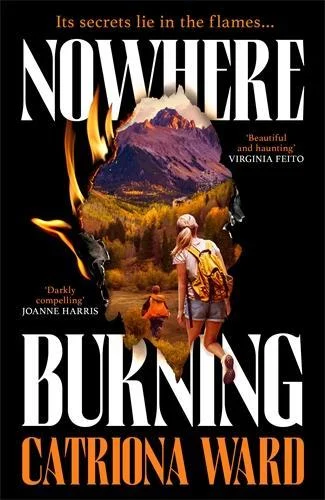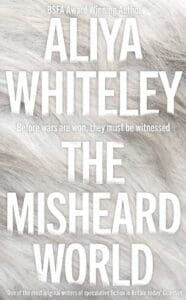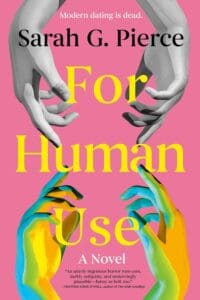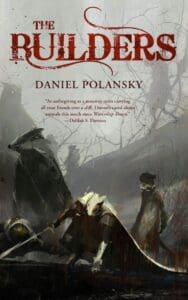
Synopsis:
High in the mountains sits Nowhere, a verdant valley surrounded by walls of rock. People have lived at Nowhere for centuries, though never for long, and rarely happily. Its last owner was its most famous: movie star Leaf Winham, who built Nowhere House as a refuge to hide from his fame… and to hide his crimes. Only when Nowhere House went up in flames were the graves discovered, the last resting places of lost young men who would never go home.
Years later, Nowhere valley has become a sanctuary for runaway children, a place where adults cannot enter. Drawn by this promise, fourteen-year-old Riley pulls her brother Oliver from his bed in the middle of the night, hoping to find a new family. But the Nowhere Children are fierce in defending their valley and their secrets. For something dark lives in the ruins of Nowhere House, something that asks a terrible price for sanctuary…
Review:
“Lord of The Flies,” meets Peter Pan by way of the dread and ambiguity that only Catriona Ward seems to be able to conjure in “Nowhere Burning.” Gruesome, bizarre and twisty, Ward’s latest is yet another infernal triumph that will keep you guessing, gasping and grimacing from its lurch of an opening to its uncertain denouement- and its difficult not to relish. Whilst it’s not toppled “Looking Glass Sound,” as my reigning favourite from Ward (and one of my favourites in general) this disturbing and mesmerising little number stakes a claim beside it and is not to be sniffed at. Ward writes at a frequency few creatives can tune into, the same one as Shirley Jackson and David Lynch I would assert, and this book is a strange lullaby from that very same station that will buzz in your ears for long after you’ve put it back on your shelf again. “Nowhere Burning,” hits shelves from Viper Books February 19th in the UK and from Tor Nightfire, February 24th in the US.
Riley and Oliver’s little lives have already been derailed following the death of their mother and a Snicket-type set up with their next of kin, an abusive man only referred to as “Cousin.” Things change for them though when Riley is followed home, mere days before she grabs her younger brother and flees. The pair risk freezing, starving, being eaten alive, all trying to find “Nowhere.”
For reasons unbeknownst to you and I (or rather, just you, presumably) Nowhere, has a slightly grisly reputation, but the most stubborn stain would be that left behind by Leaf Winham. A beloved movie star, Winham built “Nowhere House,” as a refuge- the dark happenings there only coming to light when fire stripped his perverse and deadly secrets bare. That makes it the perfect topic for documentarians Kimble and Marc to dig into, and what they discover is beyond comprehension, slippery and entirely personal.
In “Looking Glass Sound,” Ward gives us three strands- we follow Wilder Harlow through three different periods of his life- it’s not quite that simple, but is of course too complex to unpack fully without a whiteboard or a headache. We’re not talking about that book anyway. In “Nowhere Burning,” Ward once again plays a game of threes, but this time they’re primarily made up of different character POVs- beating points of view that orbit and collide. What we end up with is this sly, horrible choreography, a chain of human consequence which Ward continues to snap links onto until our brains literally explode, painting walls and bookshelves and ceilings with gray matter. When compared to its predecessor this book is rather easier to follow, but no less shocking or more gentle for it. As always, Ward’s latest is structurally elegant and masterfully written.
The bones of the novel can be tracked back to Peter Pan, and whilst some may argue that that story already casts a pretty long and sinister shadow, Ward takes it to stomach-churning new heights and drags it into deeper and darker waters. She trades Neverland for “Nowhere,” which is accessed by a group of abandoned and abused, or rather lost, children, not via pixie dust but using a zip line. J.M Barrie’s rather charming setting is perhaps not the only inspiration Ward draws from though. I wouldn’t be so bold as to declare that Leaf Winham’s estate is reminiscent of a certain other pop culture icon’s own Neverland adjacent one (which also had a ferris wheel) but a comparison might be drawn, especially considering the type of abuse that occurs there. That abuse is appalling and surreal but also unavoidable, unsettling, yet impossible to look away from, and to clarify, unsensationalised.
May I be frank with you? This is hard. Ward’s writing is slippery and elusive and entirely unreasonably hard to describe. It’s like trying to bottle fog. It refuses to sit still enough for a neat summary and I fear I’ve made a pig’s ear of trying. It’s thus my humbler and rather obvious recommendation that you simply pick up “Nowhere Burning,” for yourself, or, if you’re still waiting, “Looking Glass Sound,” or “Sundial,” (which I think is the most similar to this one) or “Rawblood.” Truly anything she has written will do. Come back and tell me about what it did to you when you’ve finished.











Leave a Reply